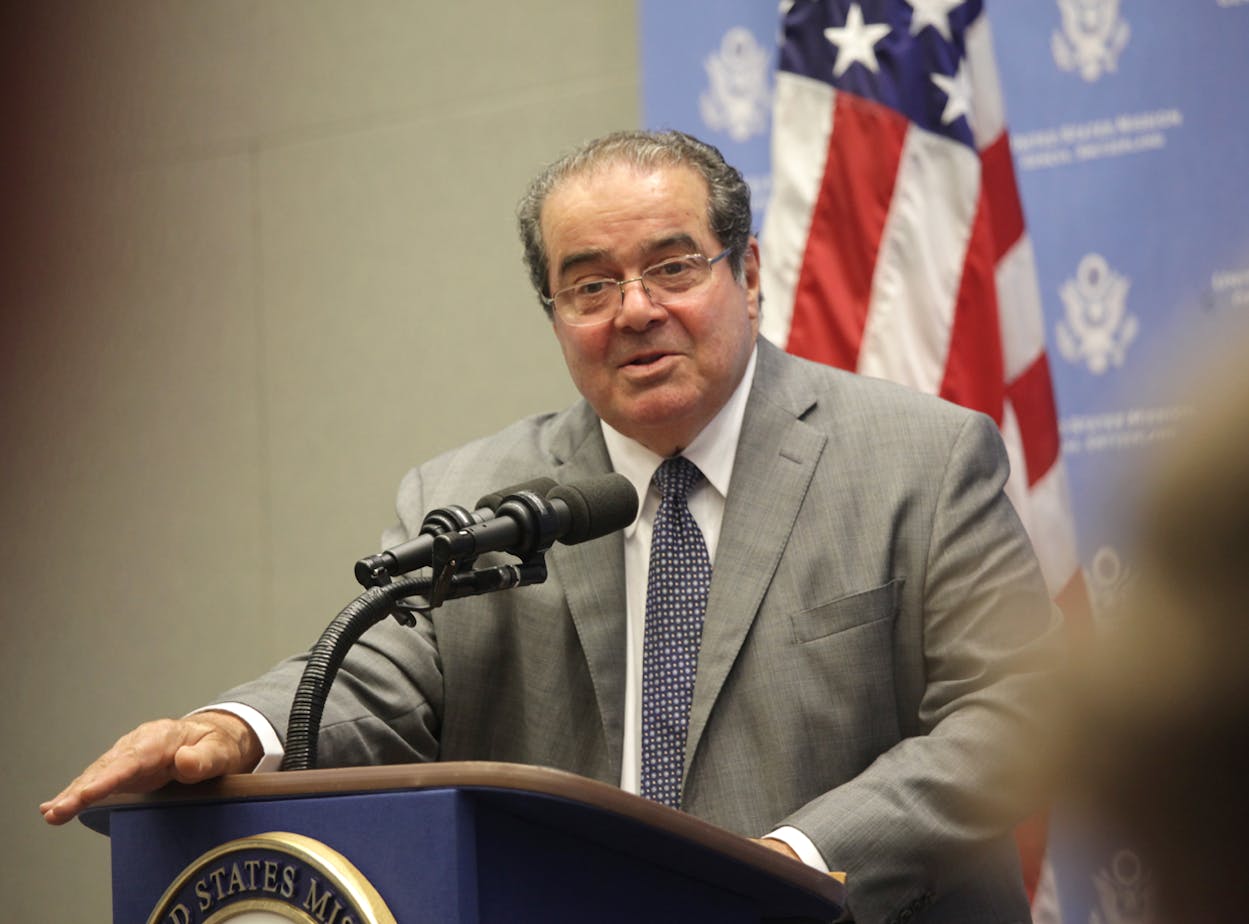In the most enticing—and far more suspenseful—“will he or won’t he” scenario since Rick Perry’s presidential plans, U.S. Supreme Court Justice Antonin Scalia has opened a small window of possibility for the state’s desire to restore its legislative (and, it’s also expected, Congressional) maps.
Attorney General Greg Abbott has requested an emergency stay to overturn the interim maps that are currently in effect, which were drawn up by a panel of lower-court federal judges in San Antonio.
Instead of denying it immediately, Scalia, the judge who is in charge of emergency requests from Texas, responded with a call for additional legal briefings from the Mexican-American Legislative Caucus and other interested parties (many of whom are plaintiffs in a separate lawsuit challenging the state’s original maps). Those briefs are due to Scalia’s office Thursday afternoon.
As Tim Eaton of the Austin American-Statesman reported, though the filing period already started on Monday, the state’s request would postpone the primary election. In the filing, Abbott suggests the March 6 election could proceed as usual for other offices, while the House, Senate and U.S. Congressional primaries could be moved to the May date that is already reserved for potential run-offs.
But does Scalia’s request for more information mean these things could happen, even as such prominent candidates as San Antonio democrat Joaquin Castro (who is running for Congress) and Rio Grande Valley republican Aaron Peña (who has decided not to run) make plans based on the interim maps?
According to lawyer and redistricting blogger Michael Li, who was quoted in both that Statesman piece and the joint San Antonio Express-News/Houston Chronicle report on Monday, the answer is no.
“It’s harder to put the genie back in the bottle,” Li told the Express-News.
And on his own blog, Texas Redistricting, Li went into more detail, writing, “Is (Scalia’s) request a harbinger of any sort? Probably not,” he wrote, noting that the same request from the same justice also happened in 2004.
But in that case, Li notes, the situation was reversed: the court was being asked by minority groups and democrats to intervene and stop the “DeLay map.” Eight years ago Abbott was arguing against that stay request because candidates across the state were already filing, campaigning, and making other plans based on the approved maps.
Also the “DeLay map” had a legal force that the state’s current unimplemented maps do not. The 2004 maps were pre-cleared by the Department of Justice and a federal panel of judges; the interim 2012 maps only exist because the state’s original maps have yet to make it over either of those hurdles.
In 2004, after receiving all the briefs, Scalia joined with the entire court in unanimously denying the stay request.







